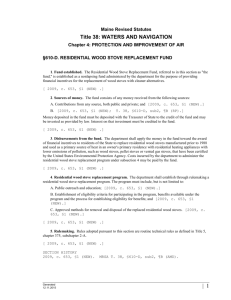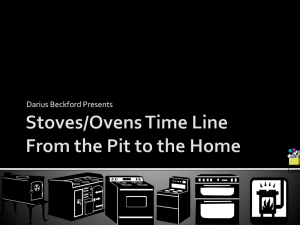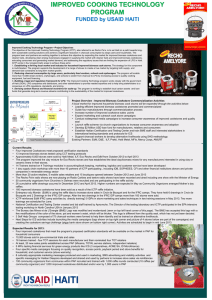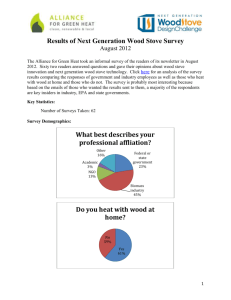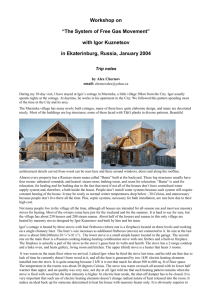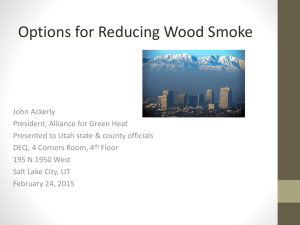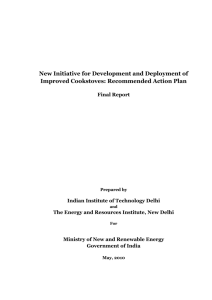professional experience - The Alliance for Green Heat
advertisement
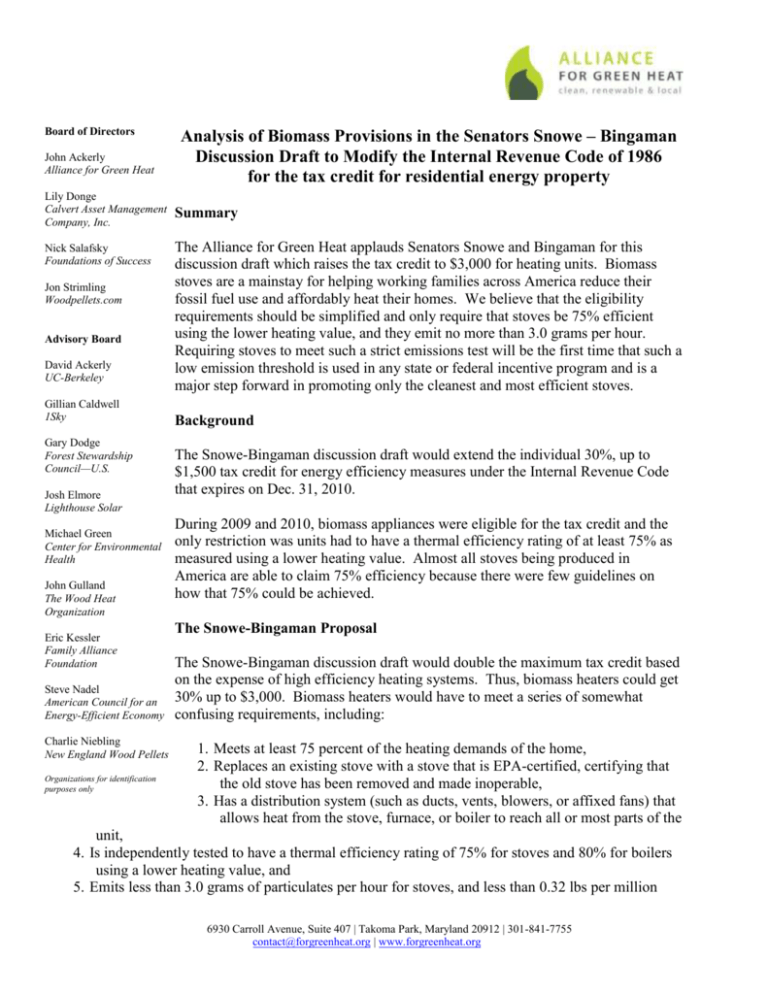
Board of Directors John Ackerly Alliance for Green Heat Lily Donge Calvert Asset Management Company, Inc. Nick Salafsky Foundations of Success Jon Strimling Woodpellets.com Advisory Board David Ackerly UC-Berkeley Gillian Caldwell 1Sky Gary Dodge Forest Stewardship Council—U.S. Josh Elmore Lighthouse Solar Michael Green Center for Environmental Health John Gulland The Wood Heat Organization Eric Kessler Family Alliance Foundation Steve Nadel American Council for an Energy-Efficient Economy Charlie Niebling New England Wood Pellets Organizations for identification purposes only Analysis of Biomass Provisions in the Senators Snowe – Bingaman Discussion Draft to Modify the Internal Revenue Code of 1986 for the tax credit for residential energy property Summary The Alliance for Green Heat applauds Senators Snowe and Bingaman for this discussion draft which raises the tax credit to $3,000 for heating units. Biomass stoves are a mainstay for helping working families across America reduce their fossil fuel use and affordably heat their homes. We believe that the eligibility requirements should be simplified and only require that stoves be 75% efficient using the lower heating value, and they emit no more than 3.0 grams per hour. Requiring stoves to meet such a strict emissions test will be the first time that such a low emission threshold is used in any state or federal incentive program and is a major step forward in promoting only the cleanest and most efficient stoves. Background The Snowe-Bingaman discussion draft would extend the individual 30%, up to $1,500 tax credit for energy efficiency measures under the Internal Revenue Code that expires on Dec. 31, 2010. During 2009 and 2010, biomass appliances were eligible for the tax credit and the only restriction was units had to have a thermal efficiency rating of at least 75% as measured using a lower heating value. Almost all stoves being produced in America are able to claim 75% efficiency because there were few guidelines on how that 75% could be achieved. The Snowe-Bingaman Proposal The Snowe-Bingaman discussion draft would double the maximum tax credit based on the expense of high efficiency heating systems. Thus, biomass heaters could get 30% up to $3,000. Biomass heaters would have to meet a series of somewhat confusing requirements, including: 1. Meets at least 75 percent of the heating demands of the home, 2. Replaces an existing stove with a stove that is EPA-certified, certifying that the old stove has been removed and made inoperable, 3. Has a distribution system (such as ducts, vents, blowers, or affixed fans) that allows heat from the stove, furnace, or boiler to reach all or most parts of the unit, 4. Is independently tested to have a thermal efficiency rating of 75% for stoves and 80% for boilers using a lower heating value, and 5. Emits less than 3.0 grams of particulates per hour for stoves, and less than 0.32 lbs per million 6930 Carroll Avenue, Suite 407 | Takoma Park, Maryland 20912 | 301-841-7755 contact@forgreenheat.org | www.forgreenheat.org BTU for outdoor boilers and furnaces. Analysis and Recommendations The federal tax credit provided an important incentive for modern wood and pellet stoves which are used extensively by rural, low and middle income families to provide affordable and reliable heat. 1. Increasing the tax credit: The increased credit level of $3,000 would provide an incentive large enough to allow families to buy larger stoves and boilers that easily meet 100% of a home’s heating needs and displace 100% of the fossil fuels previously used. 2. Existing stove requirement: The requirement that you already have to own a wood stove should be removed. While that serves a good role – to get older stoves off the market – it means that working families who really need this credit, can’t take advantage of it unless they already have a stove. At a minimum, the requirement should only apply to wood, and not pellet, stoves. 3. Home heating needs: The requirement that the stove or boiler has to meet 75% of a home’s heating needs is unnecessary and should be removed. Even small stoves that can only effectively heat one or two rooms are very valuable and cost efficient for reducing fossil heating fuel usage. Moreover, this requirement would add costly burdensome paperwork and analysis to determine if the stove met the requirement. 4. Distribution system: The requirement that the stove or the house have a distribution system should also be removed. Many stoves and homes have distribution systems, but stoves are often very effective at distributing heat in open floor plans without distribution systems. Fans in pellet stoves or on the back of wood stoves do not necessarily help heat get even into the next room. 5. Stove Emissions: The emission threshold of 3.0 grams per hour is an excellent requirement and in our analysis gets to the core of what needs to be regulated in wood stoves – and what should be incentivized by a tax credit. This requirement will cut out an estimated 50% – 65% of all wood stoves, leaving only the cleanest and most efficient. It will only cut out an estimated 20% – 30% of pellet stoves since they are much cleaner to start with. Almost all the all the major stove brands have at least 3 models that emit under 3 grams an hour: Blaze King (WA), Buck Stove (NC), Country Flame (MN), England’s Stove (VA) Harman (PA), Hearthsonte (VT), Jotul (ME), Lennox (CA), Vermont Casting (VT/KY), Quadrafire (WA), Travis (WA), US Stove Company (TN) and Woodstock Soapstone (NH). 6. Boiler emissions: Adding the requirement that outdoor boilers emit no more than .32 pounds per million BTU is a good one, and if anything could be strengthened. 7. Efficiency: While we support the third party tested 75% efficiency for stoves, we believe boilers should have to be 85% efficient, using lower heating value. The Alliance for Green Heat promotes clean, high efficiency biomass heating as a low carbon, affordable solution for America. The Alliance is an independent, national non-profit and tax-exempt organization based in Takoma Park, Maryland.

